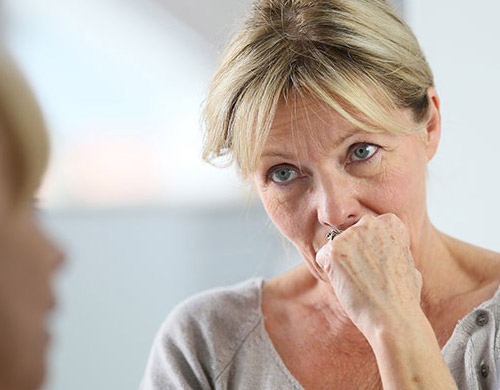It can feel so heartbreaking when you or someone you love has a problem with alcohol or drug addiction, that you don’t know how to help. Although addiction is a disease, it can be managed when evidence-based rehabilitation methods are explored. Long term recovery from addiction is achievable.
This page will address how integrating different rehabilitation methods can assist with a sober future for you or a loved one.
What is Addiction Rehab (Rehabilitation)?
Addiction ‘rehab’ is a holistic term that utilizes both therapy and medical interventions to treat dependencies on both illegal and legal substance addictions. Rehab is more effective when it is tailored to your individual needs and incorporates a medically-supervised detox, residential and outpatient services, as well as aftercare support.

Facts & Statistics about Addiction in Palo Alto
Prevalence of Substance Use Disorder, by Drug Type
(IN THOUSANDS)
- 2,7578.5%Any Substance
- 2,0886.4%Alcohol
- 1,0683.3%Ilicit Drugs
- 2060.6%Pain Medication
Drug- and Alcohol-Induced Deaths by Age Group, California, 2016
- Alcohol-Induced
- Drug-Induced
- 18 to 250.5
- 9.6
- 26 to 354.3
- 13.9
- 36 to 6424.2
- 22.9
- 65+23.7
- 9.4
Drug Use, by Selected Type and Age Group California, 2015 to 2016
- 12 to 17
- 18 to 25
- 26+
- Marijuana*13.2%
- 34.0%
- 13.5%
- Misuse of Pain Medications3.5%
- 8.0%
- 4.3%
- Cocaine0.8%
- 7.2%
- 1.8%
- Heroin0%
- 0.4%
- 0.2%
What are the treatment options available in Palo Alto?
By integrating treatments, the primary causes of drug addiction can be addressed and treated. It is necessary to treat the symptoms of addiction, but coping methods need to be considered, in order for you to deal with the triggers that lead to the drug or alcohol dependency.

Private Residential Programs
Residential rehab programs require you to live at the treatment facility and have your treatments on-site. The main benefit is the ability to receive holistic support and treatment every day.
There is substantial value in removing yourself from the home environment and becoming fully immersed in the treatment program, because you are no longer vulnerable to the triggering environments that may have caused you to use substances. Finishing your residential rehab program and avoiding relapse is much easier when you stay in a secure and controlled environment. Residential rehab programs are generally more effective when your substance dependency is chronic and complex in nature, or if you suffer from co-occurring illnesses or a dual diagnosis.
Recovery from addiction is achievable if you partake in a residential rehab program, however if you wish to maintain it you will need to rise above the difficulties that come with the first few months of recovery. After you complete your residential addiction treatment program your priority will be on transitioning to greater independence as you start to think about what you want from your life free from drugs or alcohol.
Do You Need Help?
Let us help you start your recovery journey today.

Sober Living Programs
You can develop the skills necessary to live substance-free by engaging in a sober living program, which will support you through the early stages of recovery. This can be done by:
- A house manager who checks up on you daily
- Supporting you on acceptable ways to behave in recovery
- Fostering necessary friendships with others in recovery who understand your experiences
Outpatient Programs
Outpatient rehab programs are considered to be flexible by allowing you to have treatment at the treatment facility while you continue important career or family obligations.
Outpatient programs teach you:
- Education around substance misuse
- Counseling and therapy by means of group support or individual sessions – The duration of outpatient treatment is three months and continue for longer than a year, this will depend on your personal requirements.
Detox Only Programs
The need for detoxing a substance from your body is the first step of rehabilitation, as it removes the substance, putting an end to your physical dependence. During detox you will go through withdrawal symptoms as the system stabilizes to function without the substance it was physically reliant on.
This process of detoxification marks the beginning of the recovery journey, following which you will start to deal with the latent causes of your addiction to avoid a repeat of those same cycles. Many substances cause withdrawal and cravings for a period of time after they have been eliminated from your body. Building on vital skills can help you to minimize your odds of relapse as you adapt to your new life.
Paying for Private Treatment
Private rehab needs to be self-funded or claimed directly through your insurance. Typically, insurance companies will allow you to claim for the costs of rehab, or at least some of the costs, including a drug or alcohol detox regime, rehab therapy, and relapse prevention programs. The amount covered for your rehab treatment is down to your provider and the policy agreement.
Always determine the amount of cover you can claim before enrolling in a treatment program. By visiting our Verify Your Insurance page, you can find out what cover you are able to claim. By not making a claim via your health insurance cover, the balance of your treatment programme will need to be covered directly. You may be able to opt in to a payment plan if the total cost is too much upfront.
State Funded Programs
State-funded treatment programs are useful for people who are ready to address a drug or alcohol dependency but have limited money to take part in a private rehab program. These programs work by using government funds from state budgets, Medicaid and federal government to provide addiction recovery and may include:
- Medical alcohol/drug detox
- Addiction Rehabilitation and aftercare services.
State-funded treatment programs are available to people who have no private health insurance or who reside in low income areas. When applying you will need to show:
- Proof of low income
- Proof of residence
- Your personal medical details regarding your drug or alcohol misuse
- Proof you are living in the US legally
https://www.grants.gov/ gives all the info necessary to make an application. You can also find direct contact details for your state agency by clicking here.

The following state-funded addiction rehab programs are available in Palo Alto:
HealthRIGHT 360 East Palo Alto Youth Services
2396 University Avenue, Palo Alto, CA 94303
415-762-3700 x2
www.healthright360.org/
Maintaining Addiction Recovery in Palo Alto
Maintaining recovery can be difficult once you return to life outside of rehab. You had the benefits of professional support in a controlled environment at the rehab center. As you adjust to life after rehab it is very likely that you will find yourself in situations that you still need to learn to address. In our experience, clients with intense dependencies and those who do not develop the necessary support structure find long term recovery more difficult when they leave rehab. If you don’t have aftercare support or guidance in the initial stages of recovery, relapse can occur.
The following AA/NA meetings are available in Palo Alto:
ALL SAINTS CHURCH
Echoing Recovery Group and Home Group, Non-Smoking, Discussion/Participation, Speaker and Open:
555 Waverly Street, Palo Alto, CA 94301
Thursday: 8:00 pm
https://www.drugstrategies.org/AA - 10 10 Group
Open and Wheelchair Access:
670 East Meadow Drive, Palo Alto, CA, 94301
Monday: 10:10 am – 11:10 am
https://alcoholicsanonymous.com/AA - Courage to Change Palo Alto
Closed and Women:
555 Waverly Street, Palo Alto, CA 94301
Wednesday: 7:30 pm – 8:30 pm
https://alcoholicsanonymous.com/
Aftercare & Alumni Programs
By participating in an aftercare program you get extended rehab support when you go home. As many as 60% of individuals in recovery will relapse because of the unpredictable challenges in life, taking part in aftercare programs can boost your chance of long-term sobriety. Once you are near completion of your rehab program you should think about the counseling and therapies most useful to long-term sobriety and an aftercare program will be developed to help you.
Those who finish their treatment programs can join an alumni community program like ours, which gives you the chance to engage with staff and peers. You can participate in Alumno events, join groups and get advice and encouragement from others who are also in long-term sobriety. You may feel empowered to pay the favor forward, by providing your support to other active members in recovery.

Support Groups (Fellowship Meetings)
Through support group meetings you will enable a support structure that is great for your long-term sobriety. By joining a group that follows the 12-step model, like Alcoholics Anonymous and Narcotics Anonymous, you can receive ongoing support via group meetings. When you attend support groups, you will have the ability to share your experiences and listen to other members in similar walks of life. Companionship, empowerment and accountability for our actions are key to long-term recovery, and meetings provide many with the necessary tools to stay sober.
Support for Families & Children Affected by Addiction
Some people in an addicted household are damaged more than other individuals. Support is crucial for all family members, not only the individual struggling with the dependency. Family support groups provide you and your loved ones with affective coping tools for your own life and allow you to offer more support to the person who has the dependency. Examples of Family and Child Support Groups are:
- Parents of Addicted Loved Ones
- SMART Recovery Family & Friends
- NAMI Family Support Groups
- Al-Anon
- Families Anonymous
- Alateen
- Nar-Anon










